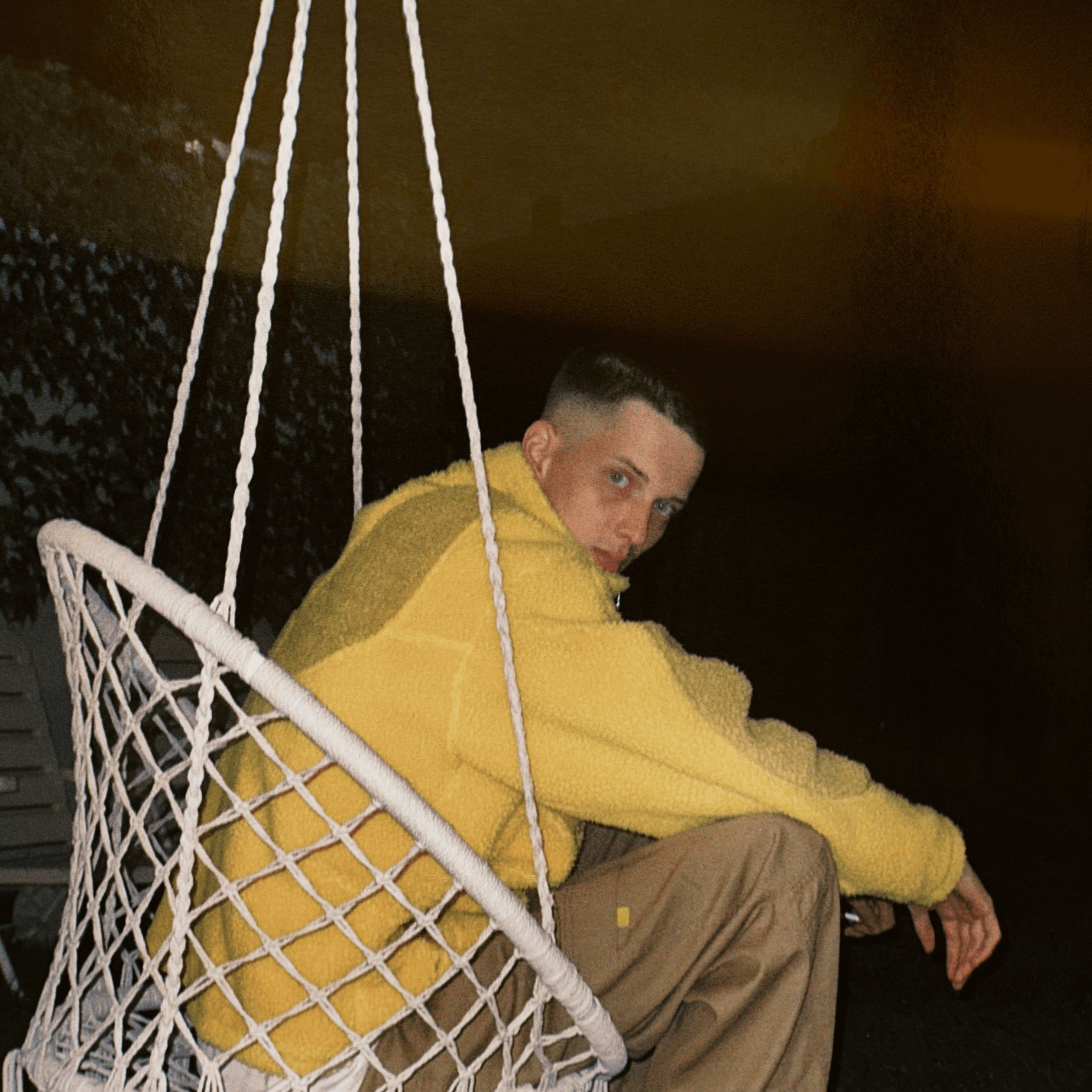Every now and then, a producer arrives whose influence extends beyond hits, shifting the way we think about production itself. Cryptic is exactly that kind of producer. Fresh off a JUNO win for his contribution to “Kaleidoscope” (ft. Travis Thompson, alongside Joe Farwick & Eestbound) from the album Red Future, he’s making significant industry strides—including landing a notable placement on Tory Lanez’s latest album through WAVS. But Cryptic’s impact doesn’t end there: he’s widely recognized for his standout oneshot kits, innovative sample packs, and his highly-regarded Sound Scientist Academy, aimed at empowering the next generation of elite producers.
We sat down with Cryptic to learn more about his creative journey, insights from recent successes, and his thoughts on industry developments and producer authenticity.
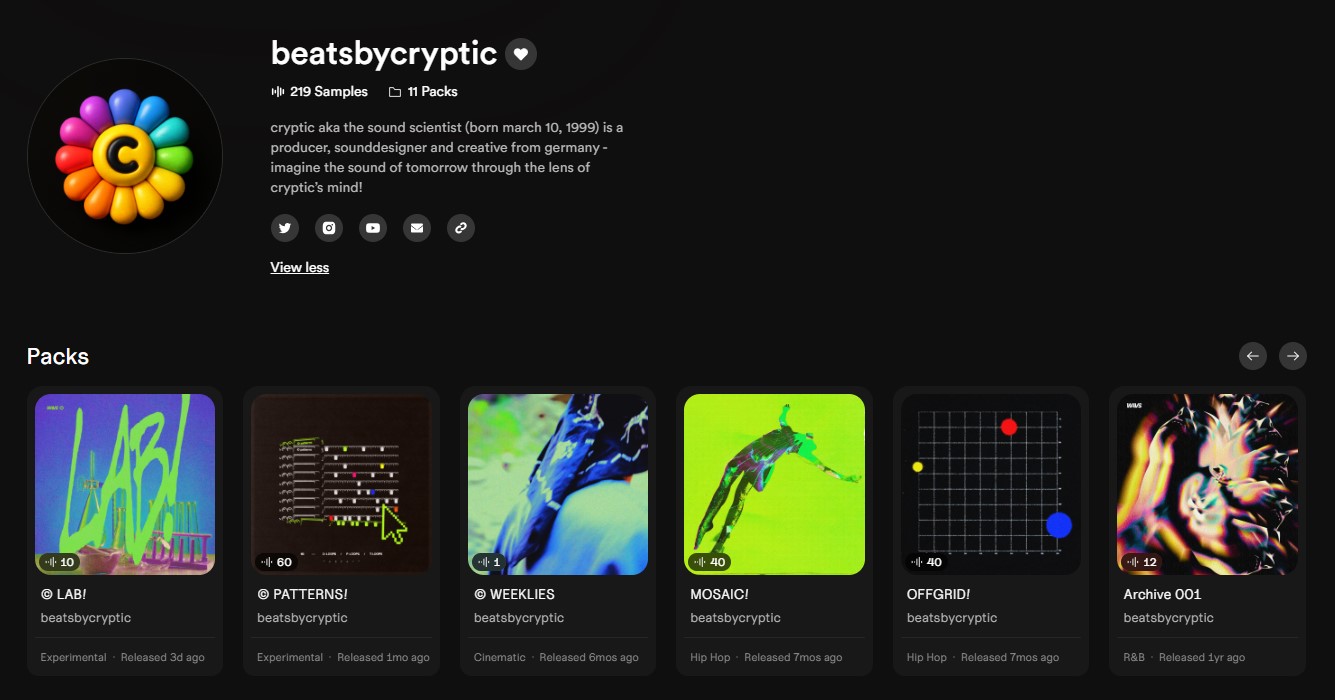
Q: Who’s Cryptic, how did you first emerge in the music scene, and what’s your musical background like?
Cryptic: My goal has always been that I wanted people to recognize a Cryptic beat just by listening—no voice tags, no checking credits. I started making music around 2017, got into uploading type beats on YouTube pretty quick, and that’s how I started building my community. I don’t really have a musical background; I played a bit of guitar in first grade but everything else is self-taught. Shoutout Nick Mira & Internet Money!
Q: You’ve accomplished significant milestones recently, including your JUNO award. How does this recognition feel, and has it impacted your approach or perspective on producing?
Cryptic: It’s amazing. I’m super grateful for every achievement, no matter how big or small it is. It definitely motivates me to just keep going and never give up—you never know what happens next.
Q: Congratulations on the JUNO win for Best Rap Album—can you share the story of how “Kaleidoscope” came together, and what it meant for you creatively?
Cryptic: Huge thank you to Eestbound, who made all of this happen. I was sending out samples to him for a while; he picked some of these and placed one with Snotty Nose Rez Kids, which ended up being “Kaleidoscope.” I made that sample in May 2022 with my good friend Joe. We instantly knew we had something special but never expected it to become such a huge record and achievement.
Q: You’ve also recently placed a record with Tory Lanez through WAVS. How did that come about, and what’s the experience been like collaborating at that level?
Cryptic: Honestly, I didn’t even know this record existed until it dropped. While listening to the album, I was like ‘Wait, hold up, this is my drum loop.’ It’s such a crazy feeling to hear pieces you make in your bedroom on these major records. At first, it was a bit confusing figuring out who else produced on the record, but thanks to manager Max we could figure everything out pretty quickly.
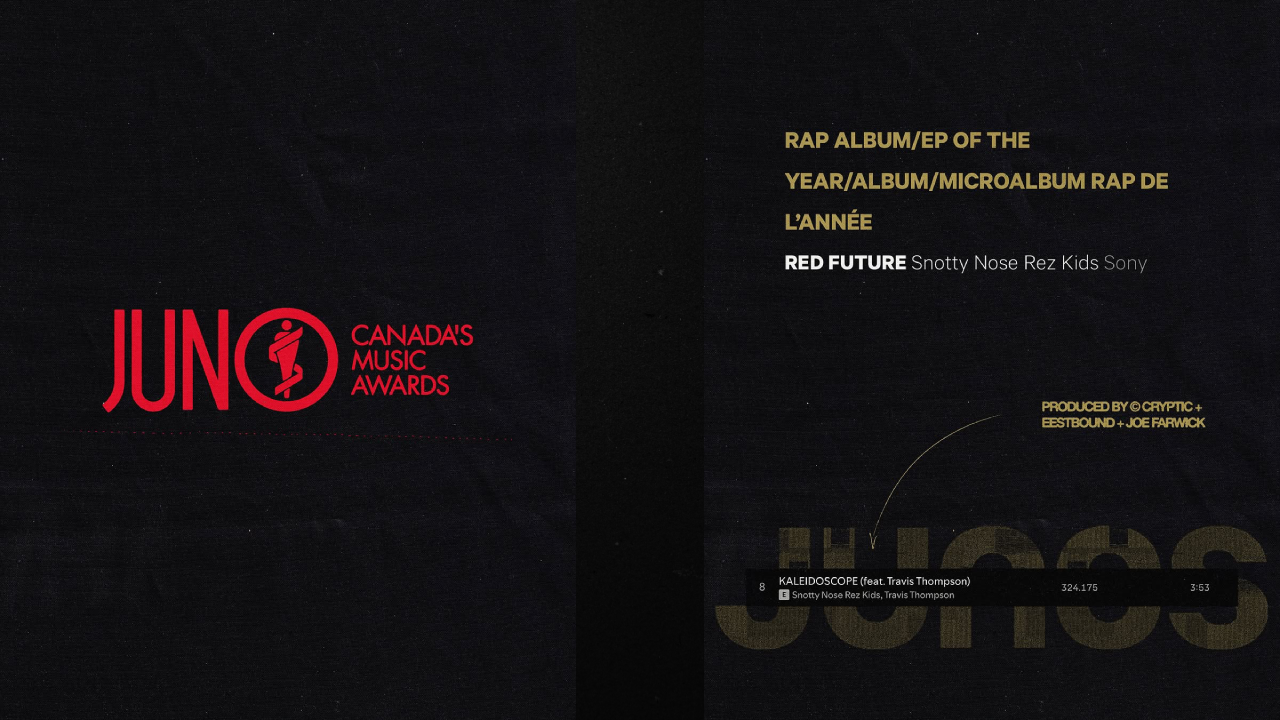
Cryptic’s JUNO award win with Snotty Nose Rez Kids for Best Rap Album Of The Year
Q: Your oneshot kits and sample packs have gained immense popularity. What’s your creative process behind building these collections?
Cryptic: A lot of it is just consistency. I’ve been making kits and sample libraries for a few years now and got better with each pack. I’m always for quality over quantity, trying to see what’s missing in the community and what’s not been done before. Usually, I start with a concept that just comes to mind and build from that. For example, with the ‘Organica’ drum kit, the first thing I had was just the name. I started building everything around that—what sounds fit into that world, what materials I can use or record, and how to structure it for better workflow. In my opinion, sound kits are the albums or singles of producers, so I treat them like that.
Q: What advice would you offer producers who aspire to create impactful, high-quality sound packs?
Cryptic: Be yourself. What I see a lot lately is copycats and imitation. It’s always great to be inspired but copying something one-to-one ain’t it. Showcase who you are, your personality, and create what you want to see in this world. Take time to learn about recording techniques, sound design, and mixing. We have the internet; you can literally learn anything. It takes time and patience, but in the end, you’ll have something so true to yourself that nobody else could’ve done it. Don’t rush the art—build your sound before you drop a kit so people can understand what type of sounds they’re getting.
Q: What would you say is your favorite VST, the one you use most, and a VST that would instantly level up a producer’s game?
Cryptic: That’s a tough one, haha. I’ve been using this unreleased plugin on my master channel lately which I love so much. Can’t tell too much about it yet, but it’s gonna change the producer community. I love the new Arturia FX plugins, especially if you want to really go crazy or chaotic on sound design. EchoBoy is still my go-to delay—nothing can beat that. What really helped me is putting Fruity Limiter on the master instead of using a soft clipper. I know it sounds crazy, but it’s the truth.
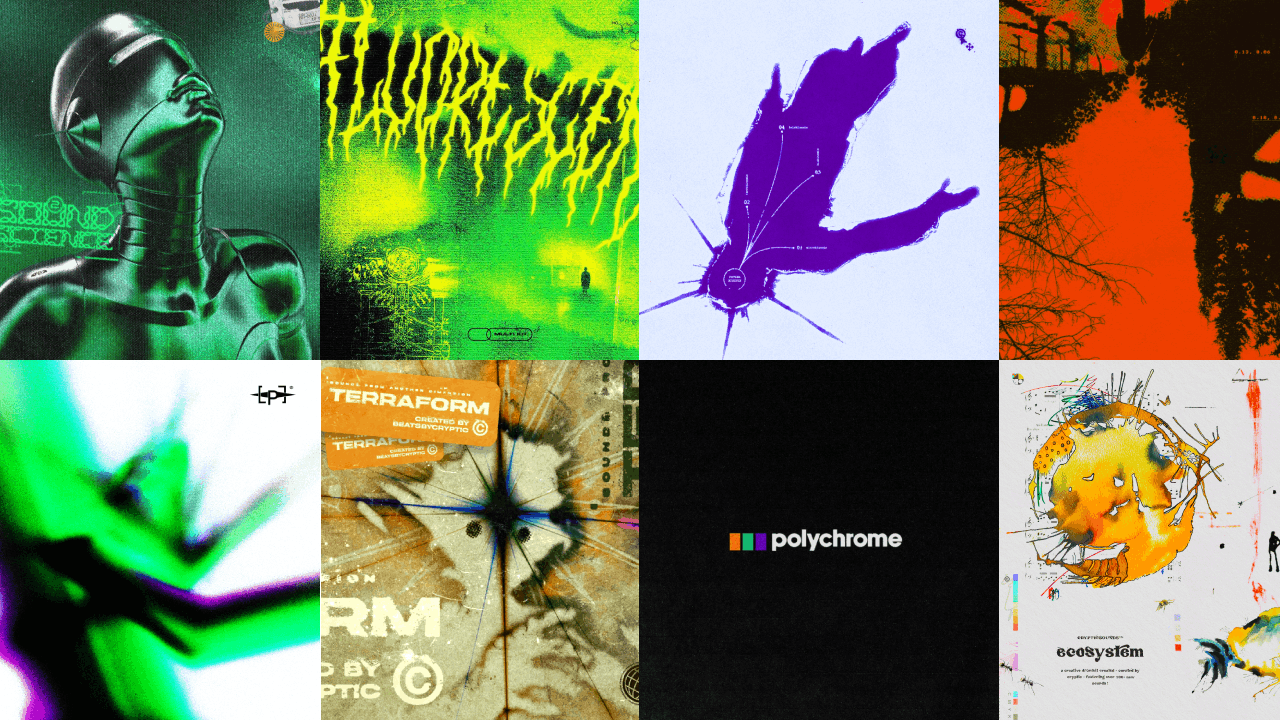
A selection of Cryptic’s pack releases
Q: You founded the Sound Scientist Academy specifically targeting experienced producers. What inspired you to create this advanced course?
Cryptic: My goal with the Sound Scientist Academy is to help the next generation of producers level up their production techniques and get a better understanding of different bounces, sound selection, creating visuals, and music in general. I’m not gatekeeping anything—I only want to inspire other producers and teach them that you can do anything you put your mind to!
Q: In your one-on-one mentorship sessions, what’s one common issue experienced producers still struggle with?
Cryptic: A common struggle is staying inspired and motivated. Sometimes you’ll set a goal—like producing a song with Artist XY—but what comes after that? I’ve also experienced this; it’s a weird feeling. Always set multiple goals, including ones people tell you aren’t possible. Always remember EVERYTHING is possible. Another thing is producers sometimes get stuck doing the same thing for years. When you start, everything feels so new and exciting—you gotta preserve that feeling at least a little bit.
Q: Could you share a memorable breakthrough moment you’ve seen from students who’ve taken your course?
Cryptic: I’ve collected amazing memories from the academy. I always love showing a project or beat, and students are like, ‘Oh, I thought it would be much more complicated.’ You don’t gotta do all that extra—the best ideas are usually the simplest ones. Realizing that levels you up so much.
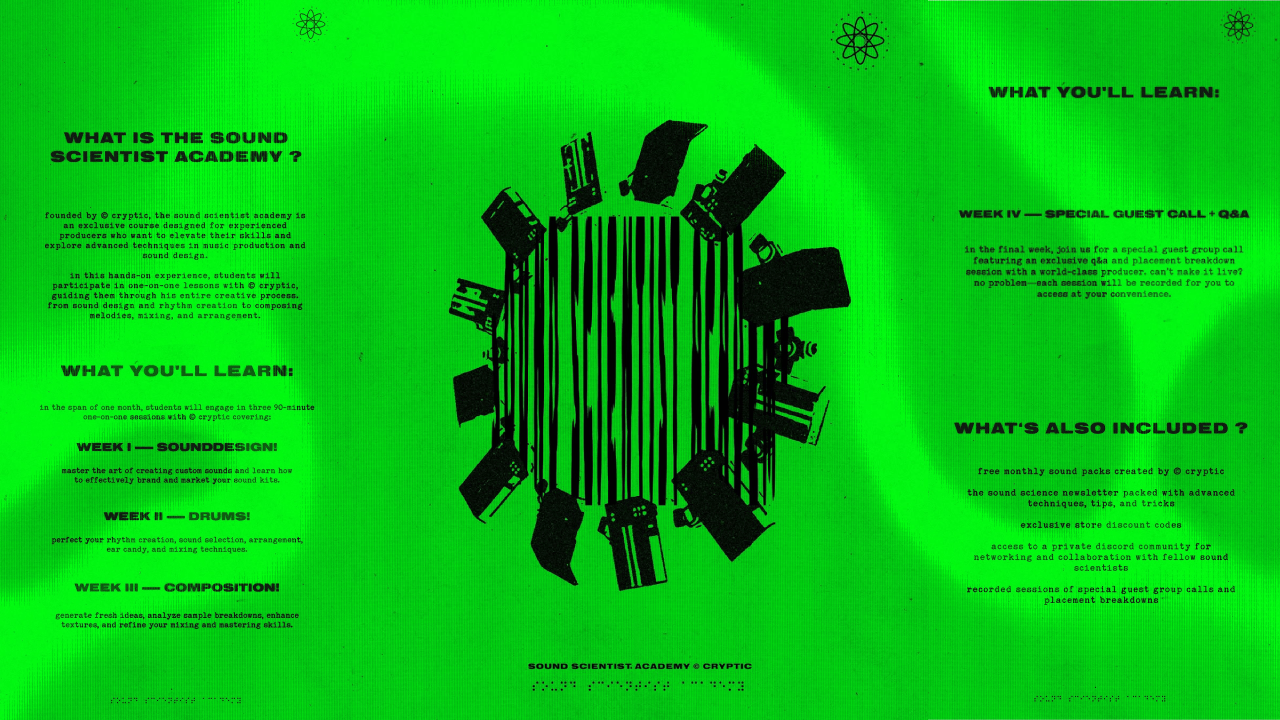
Information on Cryptic’s Sound Scientist Academy and what it entails
Q: As a producer, what’s your take on integrating AI into production workflows—helpful tool or creative obstacle?
Cryptic: Depends how you use it. If it’s to process audio or transform a vocal into an instrument, no problem. If you’re using it to generate complete ideas, that’s kinda lame. The human aspect should always be prominent—don’t let AI use YOU as a tool. AI should make your workflow easier, not replace your creativity. AI will have a huge impact in music, but I don’t think it’ll ever overtake human creativity. Humans are the greatest computers of all time.
Q: Producers juggle industry trends versus authenticity. How would you advise students and producers on this?
Cryptic: Never follow trends—create your own. Sounds simple but it’s hard, especially with social media and comparison. Listen to yourself, create what you want, no expectations. Success is subjective—if you can do what you love every day, you’re already successful.
Q: What’s a production or sound-design technique that’s underrated but holds immense potential?
Cryptic: Reverb and delays on 808s and drums in general. I’m telling you.
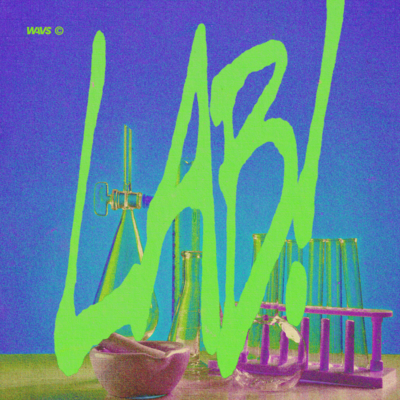
© LAB! by Cryptic, now available to sample on WAVS.com
